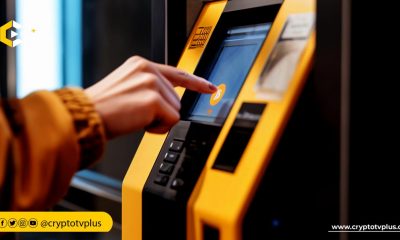News
UK Regulator takes first action against illegal crypto ATM operator

The UK’s financial regulator has charged Olumide Osunkoya, a 45-year-old man from London, for operating a network of illegal cryptocurrency ATMs. This is the first time an individual has faced such charges in the UK.
The Financial Conduct Authority (FCA) alleges that Osunkoya ran multiple ATMs that allowed people to buy and sell cryptocurrencies without proper registration. These ATMs have processed transactions worth approximately £2.6 million from December 2021 to September 2023.
Osunkoya is set to appear in Westminster Magistrates’ Court on September 30, facing charges related to money laundering and terrorist financing.
The FCA has stated that there are currently no legally registered crypto ATMs in the UK, and using these unregistered machines poses risks, as they can be exploited by criminals for money laundering.
FCA stated that operating illegal crypto ATMs is a serious offense and warned that individuals using these machines might unknowingly support criminal activities.
The FCA has been increasing its scrutiny of crypto ATMs, aiming to protect consumers and maintain regulatory compliance in the rapidly evolving cryptocurrency landscape.
Crypto crime in the UK has become a significant concern, with reports indicating that individuals and businesses have lost substantial amounts of money to scams and fraud. In 2023 alone, over £146 million was lost to cryptocurrency fraud, marking a sharp increase compared to previous years.
REPORT: Crypto ATMs enabled $160M in illicit transactions since 2019
The UK’s National Crime Agency (NCA) has recognized the growing threat of crypto-related crime and has established a dedicated unit known as the “Crypto Cell” to tackle these issues.
This unit focuses on investigating and supporting efforts to combat crypto fraud, which has been rising sharply, particularly during economic downturns when people may be more vulnerable to scams.
In response to the increasing use of cryptocurrencies by criminals for money laundering and other illegal activities, the UK government has also introduced new powers for law enforcement.
These powers allow authorities to seize, freeze, and destroy crypto assets linked to criminal activities without needing to make an arrest first. This is intended to help law enforcement act more swiftly against those using cryptocurrencies for illicit purposes.

























Pingback: Tether, Tron, and TRM Labs team up to fight crypto crime | CryptoTvplus - The Leading Blockchain Media Firm